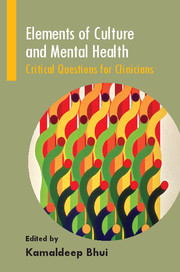Book contents
- Frontmatter
- Contents
- List of contributors
- Foreword: Desire and commitment: essential ingredients in learning about culture and mental illness
- 1 Is trauma-focused therapy helpful for survivors of war and conflict?
- 2 Will ethnopsychopharmacology lead to changes in clinical practice?
- 3 Does cognitive–behavioural therapy work for people with very different cultural orientations and backgrounds?
- 4 Can you do meaningful cognitive–behavioural therapy through an interpreter?
- 5 Are particular psychotherapeutic orientations indicated with specific ethnic minority groups?
- 6 Can psychotherapeutic interventions overcome epistemic difference?
- 7 On the role of culture and difference in evaluation, assessment and diagnosis
- 8 Necessary and sufficient competencies for intercultural work
- 9 On the validity and usefulness of existing Eurocentric diagnostic categories
- 10 Benefits and limitations of the cultural formulation in intercultural work
- 11 Barriers to the intercultural therapeutic relationship and how to overcome them
- 12 How does intercultural interpretation work in the mental health setting?
- 13 Do the power relations inherent in medical systems help or hinder in cross-cultural psychiatry?
- 14 Recovery and well-being: a paradigm for care
- 15 Social perspectives on diagnosis
- 16 Public mental health and inequalities
- 17 Can you do psychotherapy through an interpreter?
- 18 Can race and racism be acknowledged in the transference without it becoming a source of therapeutic impasse?
- 19 Cultural competence: models, measures and movements
- 20 Religion, spirituality and mental health
- Index
5 - Are particular psychotherapeutic orientations indicated with specific ethnic minority groups?
Published online by Cambridge University Press: 01 January 2018
- Frontmatter
- Contents
- List of contributors
- Foreword: Desire and commitment: essential ingredients in learning about culture and mental illness
- 1 Is trauma-focused therapy helpful for survivors of war and conflict?
- 2 Will ethnopsychopharmacology lead to changes in clinical practice?
- 3 Does cognitive–behavioural therapy work for people with very different cultural orientations and backgrounds?
- 4 Can you do meaningful cognitive–behavioural therapy through an interpreter?
- 5 Are particular psychotherapeutic orientations indicated with specific ethnic minority groups?
- 6 Can psychotherapeutic interventions overcome epistemic difference?
- 7 On the role of culture and difference in evaluation, assessment and diagnosis
- 8 Necessary and sufficient competencies for intercultural work
- 9 On the validity and usefulness of existing Eurocentric diagnostic categories
- 10 Benefits and limitations of the cultural formulation in intercultural work
- 11 Barriers to the intercultural therapeutic relationship and how to overcome them
- 12 How does intercultural interpretation work in the mental health setting?
- 13 Do the power relations inherent in medical systems help or hinder in cross-cultural psychiatry?
- 14 Recovery and well-being: a paradigm for care
- 15 Social perspectives on diagnosis
- 16 Public mental health and inequalities
- 17 Can you do psychotherapy through an interpreter?
- 18 Can race and racism be acknowledged in the transference without it becoming a source of therapeutic impasse?
- 19 Cultural competence: models, measures and movements
- 20 Religion, spirituality and mental health
- Index
Summary
Matching the type of psychological intervention to specific conditions or symptom profiles is gaining increasing popularity, particularly in light of the emphasis on evidence-based medicine and managed care (Barlow, 2004). It may also be the case that cultural differences in the expression and expected management of distress are such that certain cultural groups may derive greater benefit from specific types of psychotherapeutic approach or orientation. This chapter explores these clinical options.
Cultural values and specific therapeutic approaches
Directive approaches
Prince (2004) has described his very unsuccessful experience of applying insight and non-directive therapeutic techniques with the Yoruba in Nigeria in the early 1960s. He concluded that, given the cultural values of the Yoruba, a focus on psychological self-awareness and on childhood experiences, utilising open-ended questions in which the patient is invited to take the lead, is simply inapplicable and, indeed, counterproductive. A number of multiculturalists follow the same notion, arguing that various non-Western groups prefer or derive greater benefit from directive types of therapy, because of characteristics – perhaps world views – specific to the culture in question (Lin & Cheung, 1999; Sue & Sue, 1999).
Many non-Western cultures prefer an action orientation, look to the clinician as the expert and consider the expression (and recognition) of emotion, if at all, to belong to the domain of close family members. Such may be the strength of these characteristics that, as Prince suggested, individuals will be inimical to exploration of insight and emotional processes, and will vastly prefer and benefit from directive approaches (Atkinson & Lowe, 1996; Sue & Sue, 1999; Kirmayer, 2007). Research shows that cognitive– behavioural therapy, with or without cultural adaptation, is effective with ethnic minority and immigrant patients (Miranda et al, 2003, 2005; Voss Horrell, 2008).
Relational approaches
Relational psychoanalysts have argued that their approach, with its thematisation of a ‘three-person model’ in which the clinician, patient and overall social context are all included, is particularly valuable for individuals from collectivist cultures, given the focus in these cultures on interpersonal relationships (Perez-Foster et al, 1996; Altman, 1999; Walls, 2004; Moran, 2006). Not only are such treatment orientations adaptable to other sorts of selves (there is a strong concordance between the relational and sociocentric self); also, the overt inclusion of the social context situates mental distress within the sociopolitical dynamics that affect patients.
- Type
- Chapter
- Information
- Elements of Culture and Mental HealthCritical Questions for Clinicians, pp. 21 - 26Publisher: Royal College of PsychiatristsPrint publication year: 2013



